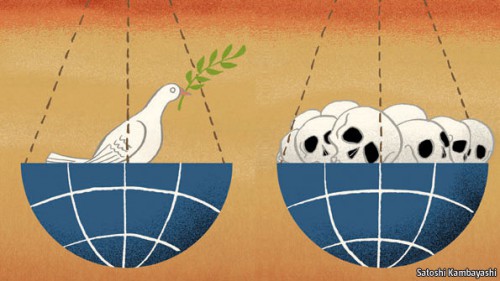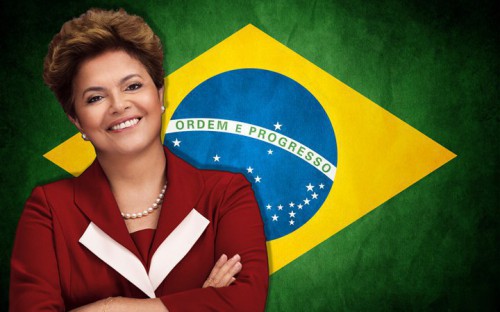
La victoire de l’Ours, de l’Éléphant et du Dragon
Alexandre Douguine
Animateur : Le sommet de l’OCS est sans doute l’événement numéro un, deux et trois, probablement, au monde aujourd’hui : du point de vue de la géopolitique, de l’économie, de la sécurité et de sa place dans l’espace médiatique. Selon vous, qu’est-ce qui prime dans ce cas, quand on commence à parler du sommet de Tianjin ?
Alexandre Douguine : Oui, c’est quelque chose de fondamental. Peut-être que ce sera précisément le point de bascule. En gros, le multipolarisme, tel qu’il est incarné dans l’OCS et les BRICS, repose sur trois piliers principaux: la Russie, la Chine et l’Inde. Trois États-civilisations incontestés. Trois pôles autonomes. Voilà ce qu’est le multipolarisme. Au départ, ce multipolarisme s’est construit prudemment, pourrait-on dire. L’idée était de le créer en dehors de l’Occident, mais pas contre l’Occident. Et si l’Occident l’avait accepté, on ne peut exclure qu’il aurait eu sa place dans ce monde multipolaire.
Mais ensuite est survenu un moment très intéressant. L’arrivée de Trump après Biden et les mondialistes, qui rejetaient catégoriquement le monde multipolaire et tentaient de préserver l’unipolarité, — Trump est arrivé avec un programme très complexe. D’un côté, il disait: je suis contre le mondialisme, je suis pour l’ordre agencé par les grandes puissances. On pouvait donc supposer qu’il s’intégrerait d’une certaine manière dans ce programme multipolaire, en essayant de maintenir le leadership des États-Unis, mais en renonçant aux plans mondialistes. Mais cela ne s’est pas produit. Trump a commencé à menacer les BRICS, à imposer de nouvelles sanctions, à poser des ultimatums à la Russie avec divers délais, à imposer des tarifs à tout le monde, et bien sûr, le point culminant a été l’imposition d’un tarif de 50% contre l’Inde parce qu'elle achetait prétendument du pétrole russe. En réalité, l’Occident achète lui-même ce même pétrole russe à l’Inde, et la Chine, qui achète également du pétrole russe, ne prête aucune attention aux menaces américaines, alors que Trump ne lui impose pas de tels tarifs élevés. Cela donne une image très contradictoire de la politique étrangère américaine. On a l’impression que l’Occident est en crise, d’autant plus qu’il y a des adversaires mondialistes qui sont contre Trump et contre le monde multipolaire, donc encore plus dangereux. Et Trump paraît osciller entre ce mal absolu et le multipolarisme. Un pas d’un côté, un pas de l’autre. Au début, il semblait qu’il accepterait, et même Marco Rubio a déclaré que nous vivions dans un monde multipolaire, que l’Amérique se fasse grande, que les autres rendent grandes l’Inde ou la Chine — on ne parlait pas de la Russie, mais en tout cas, pourquoi ne serions-nous pas de la partie? Ils se rendent grands, eux, et nous aussi, sans demander la permission à personne. Il semblait que ceci pouvait se passer pacifiquement. Mais ensuite, la situation a basculé: Trump a commencé à détruire cela, à saboter, à attaquer, à faire pression. Et là, une chose intéressante s’est produite: les tentatives de Trump — naïves, sporadiques, incohérentes — de détruire le monde multipolaire ont commencé à le renforcer.
Dans la structure du monde multipolaire, il existait des contradictions substantielles entre l’Inde et la Chine. Mais après l’introduction des tarifs contre l’Inde, que ne paient pas les Indiens eux-mêmes, mais ceux qui achètent les produits indiens en Occident, donc aux États-Unis — c’est-à-dire les contribuables américains, même si le volume des exportations va bien sûr diminuer —, l’Inde, en tant qu’État-civilisation souverain, ce que Modi souligne de toutes ses forces en parlant de la nécessité de décoloniser la conscience indienne, se voit obligée non seulement de se rapprocher de nous, ce qui se produit déjà, mais aussi de se rapprocher de son concurrent régional — la Chine. Modi n’était pas allé en Chine depuis six ans, et voilà qu’il vient au sommet de l’OCS, rencontre Xi Jinping. Il s’avère donc que Trump, en cherchant à détruire le monde multipolaire et en menaçant de nouvelles sanctions les pays qui refusent le dollar, contribue à sa formation, malgré lui. Plus il agit agressivement, plus les pays cherchant à promouvoir la multipolarité passent à des règlements dans leurs propres monnaies, plus ils se consolident. Si l’on ajoute à cela l’attitude scandaleuse de Trump envers le Brésil, on obtient un autre pôle important. Le Brésil ne participe pas à l’OCS, mais dans les BRICS c’est un pays clé. Le monde islamique et l’Afrique observent cela.

Ainsi, le sommet de l’OCS met en lumière un détail important: la construction du monde multipolaire, la formation de nouveaux pôles civilisationnels souverains se déroule dans toutes les situations — aussi bien lorsque l’Occident n’y fait pas obstacle, en allégeant la pression, que lorsqu’il y fait obstacle. On peut comparer cela à la navigation à la voile. Ceux qui ont déjà dirigé un voilier savent qu’on peut aller vers le même but dans la même direction, quel que soit le vent. S’il est favorable, on positionne les voiles d’une façon; s’il est latéral, d’une autre; même un vent de face permet d’avancer efficacement vers l’objectif, si l’on est un bon marin.
Ainsi, Poutine, Xi Jinping et Modi démontrent une maîtrise brillante de l’art de la navigation. Quelle que soit la situation à l’Ouest, qui est déjà en train de s’effondrer, avec ses protestations internes, Trump ne donnant plus signe de vie depuis plusieurs jours — beaucoup en Amérique se demandent: que lui est-il arrivé? Lui qui ne passait jamais une journée sans publier sur les réseaux, sans prononce de discours, sans donner d'interview, et le voilà soudainement absent. L’Occident est en crise: tantôt certaines de ses composantes meurent, tantôt non, tantôt elles se tirent dessus, tantôt elles soutiennent les uns, puis les autres, créent des conflits et des guerres. Mais le voilier du monde multipolaire va vers son but, indépendamment de la tempête qui secoue cet Occident manifestement à la dérive. C’est très important d'en prendre bonne note.
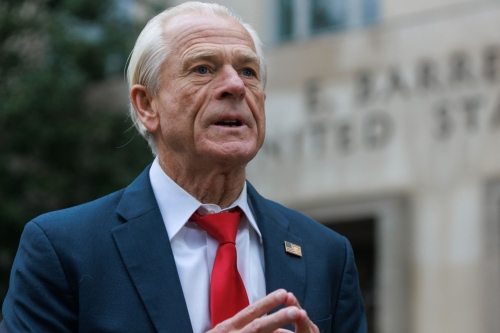 Animateur : Permettez une question en complément. Peter Navarro (photo), économiste et ancien conseiller de Trump, a récemment accusé l’Inde d’arrogance. Vous venez d’évoquer l’opposition. Il a déclaré, avec une assurance étonnante: pourquoi ne nous rejoignent-ils pas, ces Indiens? Pourquoi achètent-ils du pétrole russe? Etc. Ma question est la suivante: est-ce, selon vous, encore une incompréhension de la mentalité des Chinois, des Indiens, des Russes et de ces civilisations en général, ou bien s’agit-il d’une pression obstinée et délibérée, d’un vent contraire, quoi qu’il arrive ?
Animateur : Permettez une question en complément. Peter Navarro (photo), économiste et ancien conseiller de Trump, a récemment accusé l’Inde d’arrogance. Vous venez d’évoquer l’opposition. Il a déclaré, avec une assurance étonnante: pourquoi ne nous rejoignent-ils pas, ces Indiens? Pourquoi achètent-ils du pétrole russe? Etc. Ma question est la suivante: est-ce, selon vous, encore une incompréhension de la mentalité des Chinois, des Indiens, des Russes et de ces civilisations en général, ou bien s’agit-il d’une pression obstinée et délibérée, d’un vent contraire, quoi qu’il arrive ?
Alexandre Douguine : Si nous avions affaire à des mondialistes, c’est-à-dire à l’administration démocrate — Biden, Kamala Harris — ou aux politiciens qui tirent les ficelles en Europe, je répondrais sans hésiter: ils ne considèrent personne d’autre qu’eux-mêmes comme des sujets à part entière. Ils imposent leur propre programme, et tout ce qui s’en écarte doit, selon eux, être détruit, brisé, transformé, convaincu par la pression ou la tromperie. Tout doit se faire selon leur plan: il ne doit y avoir qu’un seul pôle — le pôle global, tous les autres doivent être dissous, les élites, surtout économiques, intégrées à la classe dirigeante globale, tout doit être monopolisé, contrôlé. Leur seule forme d’interaction avec l’Inde, avec nous, avec la Chine, est donc de dire et de répéter: "Rendez-vous!". Si vous ne vous rendez pas aujourd’hui, ce sera demain, si ce n’est pas demain, ce sera après-demain. Mais vous devez vous rendre, comprendre que, hormis l’idéologie libérale mondialiste, rien n’existe, il n’y a pas de souveraineté, pas d’intérêts régionaux, il n’y a qu’un sujet global du développement, une économie globale, le BlackRock global avec ses bulles et pyramides financières qui absorbent et détruisent l’économie réelle. C’était ainsi jusqu’à récemment, et dans une certaine mesure cela le reste.

Mais quand Trump est arrivé, il a dit: j’agirai autrement. Lui et ses proches partisans — J.D. Vance, Elon Musk, Tulsi Gabbard, des gens du mouvement MAGA (Make America Great Again) — ont déclaré: le modèle mondialiste ne nous convient plus. Nous allons nous concentrer sur nos problèmes internes, renforcer l’Amérique comme un pôle autonome. Au début, il y avait des allusions, voire des formulations explicites: que les autres se débrouillent. S’ils veulent leur souveraineté, tant mieux, s’ils veulent mener leur propre politique, qu’ils négocient ou qu’ils s’opposent à nous. Nous saurons repousser les conflits, nous saurons apprendre à négocier. C’est un modèle tout autre. Le trumpisme, du moins au départ, reconnaissait la qualité de sujet (autonome) à l’Inde, à la Chine, à la Russie. D’où la volonté de mettre fin aux interventions, aux conflits, au financement d’organisations terroristes comme en Ukraine actuelle. Mais, à en juger par les neuf premiers mois de l’administration Trump, ils n’ont pas poursuivi cet objectif. Ils sont sans cesse ramenés à l’ancien mondialisme, via les néoconservateurs.
Par des gens comme Navarro — d’abord, il n’est pas porte-parole officiel, ensuite, Elon Musk disait qu’il n’y avait personne de plus stupide que Navarro dans l’entourage de Trump. Ils s’échangent des commentaires peu flatteurs, mais il y a des gens autour de Trump qui, sans être mondialistes, sont trop primitifs, pensent à court terme, dans l’immédiateté. Leur logique déstabilise à la fois le mondialisme et le trumpisme initial. Prenons l’anecdote du clignotant défectueux: un conducteur idiot demande à un autre, encore plus idiot, de vérifier si le clignotant fonctionne. Il répond: ça marche, ça marche pas, ça marche, ça marche pas. Navarro et ce segment de l’entourage de Trump raisonnent de la même façon — par cycles courts. S’ils étaient un peu plus intelligents, ils diraient: le clignotant fonctionne, il clignote, c’est son but. Mais eux évaluent la politique — vis-à-vis de l’Inde, de la Russie, de la Chine, du Venezuela, du Moyen-Orient, de l’Europe, du Brésil — selon le principe: ça marche, ça marche pas. Aujourd’hui amis, dans 15 minutes ennemis. Pour les mondialistes, si tu échappes à leur contrôle, tu es un ennemi, on te détruira, si ce n’est pas aujourd’hui, ce sera plus tard. Les mondialistes agissent de façon cohérente, sans hésitation, cherchant à maintenir le monde unipolaire, empêchant l’émergence du multipolarisme. C’est le mal pur, une politique suicidaire, qui refuse de reconnaître la réalité. Mais au moins elle est cohérente. Les mondialistes corrompent les élites, détruisent les sujets politiques, fomentent des révolutions de couleur, déclenchent des guerres, diabolisent. Mais l’entourage de Trump n’agit de façon cohérente ni comme les mondialistes, ni comme ils l’avaient promis au départ. Cela provoque de la confusion, du désarroi, de l’embarras. Le comportement actuel de l’administration Trump, c’est de susciter de l’embarras, c'est ne faire ni l’un ni l’autre. Ni du pur mondialisme, ni le trumpisme crédible.
Animateur : Il y a donc une multipolarité interne — dans la tête de Trump.
Alexandre Douguine : Oui, cela y ressemble. De plus en plus de gens disent que cela frise le trouble psychique. Exemple du clignotant: aujourd’hui vous êtes amis, demain ennemis. À chacun on donne un délai: dans 10 jours, faites ce qu’on vous dit de faire. Dix jours passent, rien n’est fait, tout est oublié. Cela tangue, ça rappelle la bipolarité. Un pôle — le mal mondialiste, dont Trump semble se distancier, l’autre — la bonne voix: rends l’Amérique grande, cesse les interventions grossières dans les affaires internationales, comme le faisaient tes prédécesseurs. Mais ces voix se recouvrent. On a la sensation d’une personnalité divisée, d’une conscience incapable de se concentrer sur une seule ligne. Dès que Trump suit la bonne voix, la mauvaise se fait entendre, il retombe sur la ligne mondialiste. La deuxième voix dit: tu trahis tes intérêts. C’est, au fond, comme un marin débutant.

Mais Poutine, Xi Jinping, Modi — ce sont des leaders qui pensent sur le long terme. Ils construisent non seulement la situation internationale, mais aussi les régimes politiques, les idéologies de leurs pays dans une perspective lointaine, au-delà de leur propre vie. Ils sont mortels, mais leurs actions créent un ordre mondial où il n’y aura pas d’alternative au multipolarisme et à la souveraineté civilisationnelle. Trump, lui, est un homme de passage, avec un ego immense. Il ne sait pas où mener l’Amérique, son navire. Il ne veut pas aller là où l’emmenaient les démocrates, mais il ne peut plus aller là où il l’avait promis à ses électeurs.
Animateur : Permettez une question philosophique. Le multipolarisme — si on poursuit la métaphore des navires — ce sont des navires différents. Ils sont construits différemment, ils ont des structures et des voiles différentes, tout diffère — sur le plan religieux, national, géopolitique. Selon vous, où doit se situer le point d’appui, quand on parle d’une telle union géopolitique globale de l’éléphant, de l’ours et du dragon, ces trois grandes puissances ? Sur quoi doivent-elles s’appuyer ?
Alexandre Douguine : Tout d’abord, le principe d’ennemi commun n’a jamais été aboli dans la stratégie mondiale. Et ce n’est pas tout à fait l’Amérique, c’est le mondialisme. Le monde unipolaire mondialiste est une menace concrète qui vise chacune de ces nations. Le dragon, l’ours et l’éléphant ont un ennemi commun, qui veut détruire chacun d’eux, supprimer la souveraineté civilisationnelle de ces pays, de ces civilisations. Sur ce point, face à une telle pression constante — sur nous, sans doute encore plus, puisqu’on nous a imposé une guerre contre notre propre peuple —, cet ennemi commun devient un facteur de cohésion.
De plus, nous sommes prêts à reconnaître le droit à la qualité de sujet de l’autre. Les trois pôles du monde multipolaire sont d’accord: s’il n’y a pas de christianisme en Chine, ce n’est pas grave, c’est leur tradition. Les Hindous estiment que l’absence d’hindouisme en Russie n’est pas un problème. Les Chinois sont sûrs que le confucianisme est pour un système fait pour eux, pas pour l’exportation dans le monde. C’est un aspect important de notre identité, de notre idéologie. Nous rejetons ce qui est imposé de l’extérieur, nous défendons nos paradigmes civilisationnels, mais nous ne les imposons pas aux autres. Cela nous distingue de notre ennemi commun.
L’Occident collectif et mondialiste veut imposer à la Chine, à l’Inde, à nous sa propre vision. Ils ne nous écoutent pas. Notre christianisme orthodoxe ne doit pas exister, pas plus que l’hindouisme ou le confucianisme. Il doit y avoir la promotion des LGBT (interdite en Fédération de Russie), la migration, l’individualisme, l’idéologie des droits de l’homme, Greta Thunberg, l’écologie. Et, bien sûr, BlackRock doit tout diriger. Nous rejetons cela tous ensemble, mais nous n’imposons même pas à nos ennemis notre propre modèle. C’est la différence fondamentale entre la philosophie du multipolarisme et celle du mondialisme.
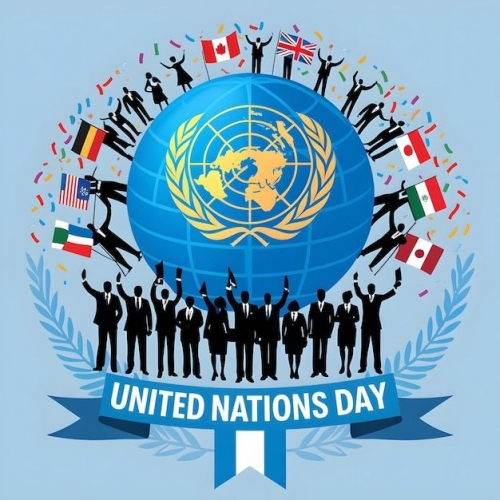
Animateur : Parlons de l’Organisation des Nations unies. Vladimir Poutine l’a évoquée dans une interview à l’agence de presse chinoise Xinhua, avant même le début du sommet de l’OCS. La Russie plaide pour une réforme de l’ONU, pour l’intégration des pays du Sud global. Première question, étant donné que le sujet est vaste: quel est, à votre avis, l’anamnèse et le diagnostic de l’état actuel de l’ONU, et une réforme globale est-elle possible dans les conditions actuelles ?
Alexandre Douguine : Il faut faire un bref retour historique. L’ONU est née à l’issue de la Seconde Guerre mondiale, une époque de vainqueurs et de vaincus. Parmi les vainqueurs, il y avait des forces principales et des forces périphériques. L’ONU est une structure créée par les principaux vainqueurs. En fait, c’est ce qu’on appelle le monde de Yalta, où tous sont égaux, mais certains sont plus égaux que d’autres, tous sont souverains, mais pas vraiment.
En réalité, deux blocs de vainqueurs étaient véritablement souverains: l’Occident capitaliste, qui a vaincu l’Allemagne nazie, et l’Est communiste. Cette structure, y compris la représentation des pays au Conseil de sécurité de l’ONU, reflète cet état de fait. Progressivement, à mesure que les blocs oriental et occidental se sont popularisés, un troisième pôle a émergé — le Mouvement des non-alignés, où l’Inde a d’ailleurs joué un rôle important. Mais la situation n’était pas équitable: le troisième pôle oscillait et naviguait entre le pôle communiste et le pôle capitaliste. En réalité, tout était déterminé par l’équilibre des forces entre le communisme et le capitalisme. Voilà ce qu’était l’ONU.
 La structure du droit international reflétait l’équilibre des forces des vainqueurs de la Seconde Guerre mondiale. L’Allemagne et le Japon n’y figuraient pas du tout — ils étaient considérés comme des territoires occupés faisant partie de l’Occident capitaliste, et c’est tout. Il n’existait pas d’autres pôles. L’Union soviétique représentait un vrai pôle à part entière. On disait de Gromyko (photo), ministre des Affaires étrangères de l’URSS — qu'il était «Monsieur Non»: car à tout ce que proposaient les capitalistes, il répondait non, chez nous, socialistes, marxistes, l’avis est autre. À chaque thèse correspondait une antithèse, mais la possession de l’arme nucléaire et une certaine parité des armements, surtout stratégiques, excluaient un conflit direct. Les conflits se déroulaient via des guerres par procuration — en Corée, au Vietnam, en Afrique, en Amérique latine. Certains soutenaient un pôle, d’autres l’autre. Le droit international reflétait cet équilibre de forces.
La structure du droit international reflétait l’équilibre des forces des vainqueurs de la Seconde Guerre mondiale. L’Allemagne et le Japon n’y figuraient pas du tout — ils étaient considérés comme des territoires occupés faisant partie de l’Occident capitaliste, et c’est tout. Il n’existait pas d’autres pôles. L’Union soviétique représentait un vrai pôle à part entière. On disait de Gromyko (photo), ministre des Affaires étrangères de l’URSS — qu'il était «Monsieur Non»: car à tout ce que proposaient les capitalistes, il répondait non, chez nous, socialistes, marxistes, l’avis est autre. À chaque thèse correspondait une antithèse, mais la possession de l’arme nucléaire et une certaine parité des armements, surtout stratégiques, excluaient un conflit direct. Les conflits se déroulaient via des guerres par procuration — en Corée, au Vietnam, en Afrique, en Amérique latine. Certains soutenaient un pôle, d’autres l’autre. Le droit international reflétait cet équilibre de forces.
À strictement parler, il n’existe pas de vrai droit international — c’est une illusion de le croire. Il y a ceux qui pouvaient faire quelque chose, et ceux qui ne le pouvaient pas. Entre ceux qui avaient réellement du pouvoir — les souverains —, un accord se nouait dans un système bipolaire, et tous les autres étaient contraints de s’y plier. Voilà ce qu’était l’ONU. Quand l’Union soviétique est tombée, l’un des pôles du système international s’est auto-dissous, s’est évaporé. Dans les années 1990, souvenez-vous de notre politique: nous disions que nous n’avions plus de souveraineté, que l'Occident, lui, était souverain, que nous suivions son sillage, que nous faisions partie de la civilisation occidentale, de la Grande Europe, que nous n’étions plus l'antithèse de l'Occident.
L’Occident alors envisageait de créer une Ligue des Démocraties: pourquoi maintenir ce résidu d’un monde bipolaire, cette chimère, ce membre fantôme? Construisons un système unipolaire, où nous établirons les règles de l’ordre libéral, la fin de l’histoire, l’hégémonie mondiale de l’Occident, et tous les autres devront s’y plier. C’est cela, la Ligue des Démocraties. Mais nous avons résisté un peu, et d’autres pays ne voulaient pas non plus reconnaître officiellement leur statut de vassaux dans ce modèle unipolaire, et l’ONU a ainsi survécu jusqu’à aujourd’hui. Maintenant, nous avons un autre système — ni bipolaire, ni unipolaire comme dans les années 1990, mais multipolaire. C’est la troisième grande configuration. L’ONU ne nous convient plus, car elle reflète encore l’inertie du monde bipolaire et le renforcement du monde unipolaire.
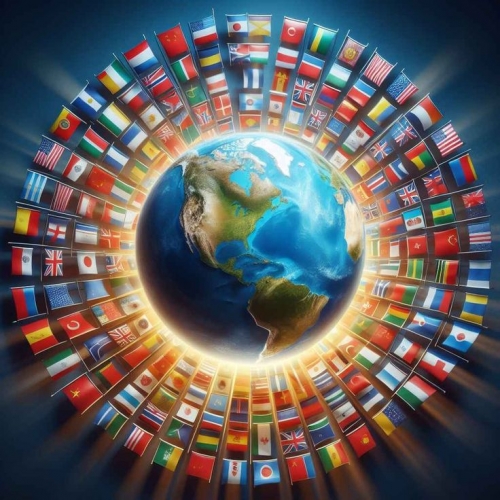
Poutine a accusé l’ONU d’avoir été prise en main par les partisans du mondialisme, qui refusent de reconnaître d’autres facteurs. L’ONU en elle-même n’est pas une panacée. Le monde multipolaire que nous construisons à travers l’OCS, les BRICS, et d’autres structures, qui sont justement polycentriques, doit devenir le prochain modèle du droit international. Dans la définition de ce qui est bien ou mal, doivent participer l’Occident, nous, les Chinois, les Indiens, les Latino-Américains, les musulmans, les Africains. Voilà ce qu’est le droit international. Si chacun de ces pôles détient une puissance suffisante — économique, militaire, idéologique, diplomatique, industrielle —, alors ce pôle pourra affirmer: je considère que c’est ainsi. Nous ne pouvons pas revenir au système de Westphalie, où chaque État reconnu est souverain — cela n’a jamais réellement fonctionné. Déjà il y a cent ans, au 20ème siècle, les pays étaient répartis en blocs. Il y avait encore le bloc fasciste, mais là non plus, les États individuels n’étaient pas souverains — ils s’effondraient dès que la main d’Hitler s’abattait sur eux. Idem pour notre bloc de l’Est et pour l’Occident global. Après la chute de l’Europe hitlérienne, il restait deux pôles, et il n’y avait plus d’États-nations. Comme l’a bien remarqué Krasner, spécialiste des relations internationales, la souveraineté est une hypocrisie.
Nous comprenons que certains États ne sont pas souverains, mais à l’ONU, leur voix pèse autant que celle de la Chine ou de l’Inde. C’est une parodie, une farce. Ceux qui sont réellement forts et capables de défendre leur souveraineté doivent établir les règles du droit international. L’Occident veut que ce soit seulement lui. Cela ne nous convient pas. Le droit international de demain doit se construire sur les principes du multipolarisme, vers quoi nous tendons. Ce sommet est lié à cet objectif. Pas à pas, d’une démarche assurée et d’acier, les trois grandes puissances bâtissent un monde multipolaire, que d’autres rejoignent. Certains courent vers l’Occident — inutile de montrer du doigt nos anciens amis qui se sont éloignés. Mais beaucoup de pays choisissent le nouveau droit international fondé sur le multipolarisme.
Animateur : D’après votre réponse, la question suivante s’impose. Nous voyons le système des grandes organisations internationales — l’UNESCO, l’AIEA, l’OMC, le CIO, l’OMS, et d’autres. Toutes montrent aujourd’hui leur inefficacité, sont critiquées, surtout l’AIEA, qui, comme on le constate, n’arrive pas à résoudre le problème nucléaire iranien et se trouve toujours à la remorque. Au final, on dirait que les organisations globales deviennent subordonnées à certains blocs. Là où le bloc Russie-Chine-Inde est fort, c’est lui qui dirige l’organisation, sans plus tenir compte de Vanuatu ou du Cap-Vert.
Alexandre Douguine : Vous avez tout à fait raison, mais le fait est que tous ces soi-disant instituts globaux que vous avez cités n’obéissent en réalité qu’à un seul bloc. Ils sont inefficaces parce que l’Occident est devenu inefficace. Ce sont des instruments de l’hégémonie occidentale. Ils ne satisfont plus ceux qui ne sont plus satisfaits par l’Occident. C’est tout. Ce ne sont pas des organisations mondiales, elles n’en ont que le nom. Ce sont des proxies occidentaux. L’Occident et ses représentants dans d’autres pays, la Banque mondiale, l’OMC — tout est construit sur la base des intérêts de l’Occident. Dès que quelque chose ne plaît pas à l’Occident, comme la Chine qui a appris à jouer selon leurs règles et les bat à leur propre jeu, ils changent aussitôt les règles, imposent de nouvelles exigences. Peut-être que Trump a été soutenu, y compris par l’État profond, parce qu’on comprend qu’il faut changer quelque chose. Mais ni les mondialistes, ni Trump ne sont d’accord pour créer un modèle multipolaire juste, et tout est donc bloqué à ce niveau.
Il est nécessaire de construire des structures internationales, des systèmes, des organisations, peut-être des centres missionnaires ou des règles de coopération économique, qui s’appuieront sur nos intérêts souverains. Les pays des BRICS, de l’OCS, les partisans du monde multipolaire ont la chance de créer de véritables systèmes internationaux, soutenus par leur propre souveraineté. C’est vers cela que nous allons. Les structures internationales existantes sont des vestiges du monde unipolaire. Il est révélateur que Trump l’ait compris, menaçant de sortir de l’ONU, de l’OTAN, de l’OMS, de l’OMC. Chaque jour, nous entendons de ce côté-là de l’océan des menaces de retrait de ceci ou de cela. C’est devenu trop évident. Quand une partie se fait passer pour le tout, c’est de la contrefaçon, de l’imposture, et la supercherie devient flagrante. Ces organisations sont le prolongement des services secrets occidentaux, et il n’est donc pas étonnant qu’on ne leur fasse plus confiance. Les nouveaux instituts doivent être créés par ceux qui partagent la vision d’un monde multipolaire.

Et l’Occident alors ? Qu’il accepte nos règles — pas seulement celles de la Russie, de la Chine ou de l’Inde, mais des règles de consensus. Si l’Amérique veut redevenir grande, elle doit reconnaître l’inévitabilité du multipolarisme. La question est celle de la coordination et du concert de ces civilisations, où l’Amérique et l’Europe, si vous voulez, trouveraient leur place. Mais avec les dirigeants européens actuels, cela ne marchera pas. Ils seront balayés. Ursula von der Leyen, Macron, Starmer, Merz — ce sont les pions d'un gouvernement d’occupation mondial, qui ne respecte pas ses peuples. Ils les traitent pire que les autres. C’est une élite d’occupation. Je pense que les peuples d’Europe — d’Angleterre, de France, d’Allemagne —, lors de soulèvements, lascèreront littéralement ces élites, comme avant, lors des révolutions. En Amérique, la société, Trump et ses partisans montrent qu’ils comprennent la nécessité de sortir de la situation actuelle par d’autres moyens. Dans l’idéologie MAGA, il y a théoriquement la possibilité de participer au concert des pôles mondiaux. Tulsi Gabbard, chef des services de renseignement américains, a décrit à plusieurs reprises comment les États-Unis pourraient s’intégrer dans le monde multipolaire à des conditions privilégiées, en créant de nouveaux instituts internationaux justes, reflétant les intérêts de tous. Il pourrait y avoir des conflits, de la concurrence, mais la Russie, l’Inde, la Chine montrent déjà comment parvenir au consensus. C’est important.
Animateur : En partant de votre réponse, parlons d’intégration. Le sommet de l’OCS a uni le Sud global, mais il s’agit maintenant non pas tant de cela que du défilé militaire et de la célébration du 80ème anniversaire de la victoire sur le Japon. Les États-Unis étaient un acteur clé du théâtre d’opérations du Pacifique, et la capitulation fut signée à bord du cuirassé Missouri. Ils sont membres à part entière non seulement de la coalition anti-hitlérienne, mais aussi de la coalition anti-japonaise. Ma question: l’absence de Trump et de l’Amérique à cette célébration, leur exclusion, ainsi que le silence de Trump sur le sommet de l’OCS — est-ce une erreur de l’Amérique, une action délibérée de l’OCS ou, avant tout, de la Russie et de la Chine ? Comment évaluez-vous ce vide du point de vue américain ?
Alexandre Douguine : Tout d’abord, contrairement à nos adversaires, nous reconnaissons la justesse historique et la contribution de l’Amérique à la victoire sur Hitler et sur le Japon militariste. Nous ne le nions pas. Notre mémoire est juste. Nous nous souvenons que ce sont eux qui ont bombardé Hiroshima et Nagasaki, mais nous leur rendons hommage: dans ce conflit, ils étaient de notre côté. De notre côté, il n’y a eu aucune démarche agressive pour exclure les Américains. Je suis convaincu que c’est leur choix. Ils ne veulent pas avoir affaire au monde multipolaire. Ils voient la Chine, l’Inde, la Russie gagner en puissance, résister sans faiblir aux tarifs et à la pression dans la nouvelle et capricieuse manière d'agir de Trump. Il n’a rien à dire. Frapper du poing sur la table ou lancer une roquette ne marche plus, il doit donc ravaler son agressivité.
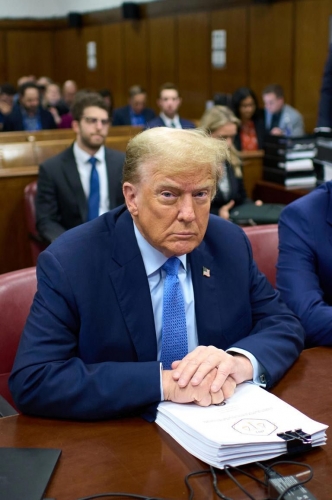
Depuis quelques jours, on a l’impression que la santé de Trump laisse à désirer. Peut-être s’est-il surmené. Alex Jones l’a prévenu : Monsieur le Président, vous avez l’air étrange, votre discours, votre logique… C’est toujours Trump, mais un peu différent. Des rumeurs circulent sur une situation encore plus grave. Nous ne lui souhaitons pas la mort, plutôt un prompt rétablissement. Nous sommes justes même envers nos ennemis. Trump n’est pas le pire qui puisse nous arriver. Il n’a pas pu garder la confiance de beaucoup, a échoué sur de nombreux fronts. Cela pourrait tourner au cauchemar pour les relations internationales, ce n’est pas à exclure. Mais humainement, l’absence de ce vieux dirigeant ne nous réjouit pas. Qu’il se rétablisse, divertisse l’humanité et intègre l’Amérique dans le monde multipolaire, même contre sa volonté. Il est en train de le faire. Nous sommes prêts à composer avec les deux visages de Trump. Si le vent contraire continue, s’il poursuit sa politique de destruction à la façon d'un éléphant dans un magasin de porcelaine, cela ne nous empêchera pas d’avancer vers notre but. S’il cesse de s’opposer, tant mieux — nous sommes prêts à tendre la main et l’intégrer aux BRICS. Si tout peut se résoudre pacifiquement — parfait. S’il faut poursuivre l’affrontement ou aller vers l’escalade, ce n’est pas notre choix, mais nous sommes prêts. Nous devons répondre à une seule question: comment garantir nos intérêts, renforcer la souveraineté et construire un monde multipolaire. Personne ne doit en douter. C’est la stratégie de notre État. Nous avons choisi cette voie fermement et nous n’arrêterons pas avant la victoire finale.
Comment se comporteront les États-Unis ou d’autres acteurs mondiaux ? — S’ils acceptent le monde multipolaire, ce sera le meilleur scénario. À Anchorage, nous étions proches d’un accord, puis nous nous sommes éloignés. S’ils ne l’acceptent pas, nous combattrons, nous défendrons nos positions. Nous combattons en Ukraine le modèle unipolaire, l’Occident collectif. Tout le monde le comprend. Nous gagnerons — par la paix, si possible, ou par la guerre, mais nous ne dévierons pas de notre chemin. L’élection même de Trump montre qu’ils doutent de la voie mondialiste. Ils ont choisi un homme qui promettait le contraire. Il n’a pas tenu ses promesses, il a reculé. Mais il lui reste trois ans. Nous pouvons voir arriver beaucoup de choses encore. L’essentiel, c’est de miser fermement sur nous-mêmes, sur la Grande Russie, sur notre victoire, notre liberté et notre indépendance.

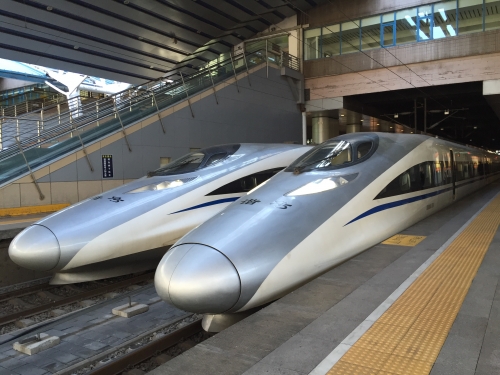






 Animateur :
Animateur : 


 La structure du droit international reflétait l’équilibre des forces des vainqueurs de la Seconde Guerre mondiale. L’Allemagne et le Japon n’y figuraient pas du tout — ils étaient considérés comme des territoires occupés faisant partie de l’Occident capitaliste, et c’est tout. Il n’existait pas d’autres pôles. L’Union soviétique représentait un vrai pôle à part entière. On disait de Gromyko (photo), ministre des Affaires étrangères de l’URSS — qu'il était «Monsieur Non»: car à tout ce que proposaient les capitalistes, il répondait non, chez nous, socialistes, marxistes, l’avis est autre. À chaque thèse correspondait une antithèse, mais la possession de l’arme nucléaire et une certaine parité des armements, surtout stratégiques, excluaient un conflit direct. Les conflits se déroulaient via des guerres par procuration — en Corée, au Vietnam, en Afrique, en Amérique latine. Certains soutenaient un pôle, d’autres l’autre. Le droit international reflétait cet équilibre de forces.
La structure du droit international reflétait l’équilibre des forces des vainqueurs de la Seconde Guerre mondiale. L’Allemagne et le Japon n’y figuraient pas du tout — ils étaient considérés comme des territoires occupés faisant partie de l’Occident capitaliste, et c’est tout. Il n’existait pas d’autres pôles. L’Union soviétique représentait un vrai pôle à part entière. On disait de Gromyko (photo), ministre des Affaires étrangères de l’URSS — qu'il était «Monsieur Non»: car à tout ce que proposaient les capitalistes, il répondait non, chez nous, socialistes, marxistes, l’avis est autre. À chaque thèse correspondait une antithèse, mais la possession de l’arme nucléaire et une certaine parité des armements, surtout stratégiques, excluaient un conflit direct. Les conflits se déroulaient via des guerres par procuration — en Corée, au Vietnam, en Afrique, en Amérique latine. Certains soutenaient un pôle, d’autres l’autre. Le droit international reflétait cet équilibre de forces.



 del.icio.us
del.icio.us
 Digg
Digg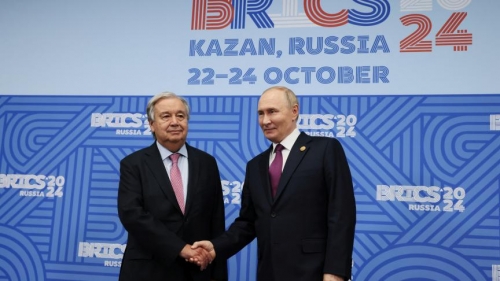

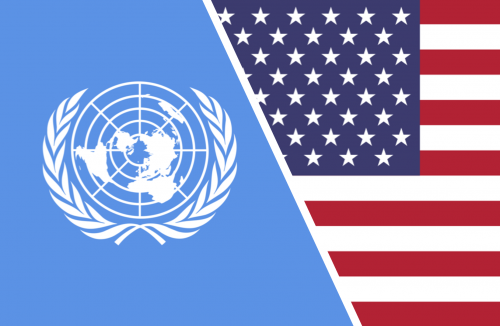
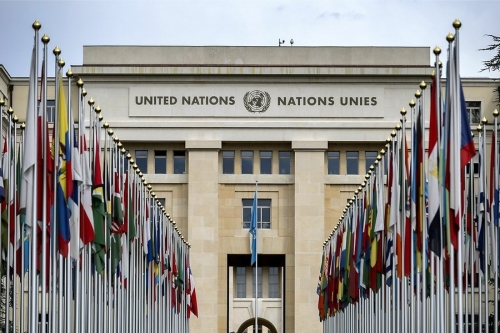
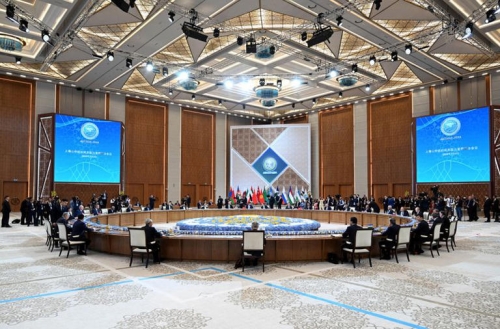
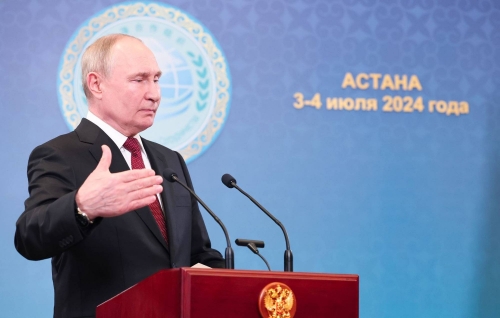

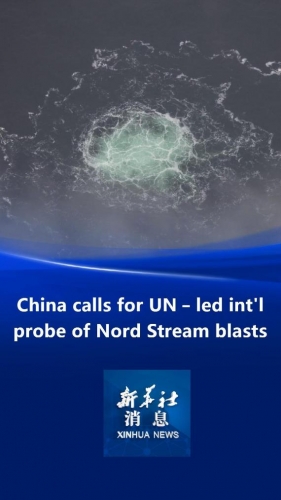
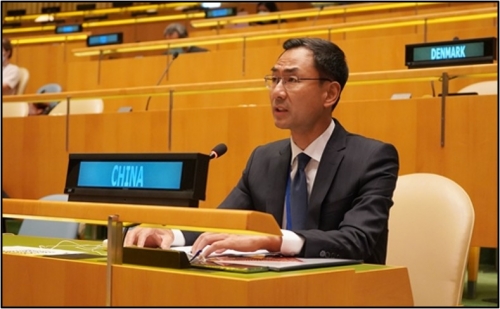
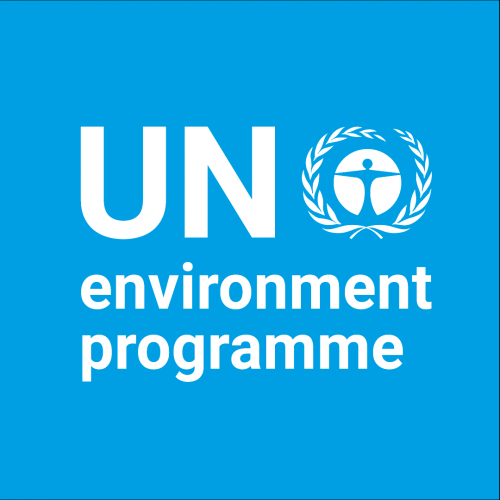
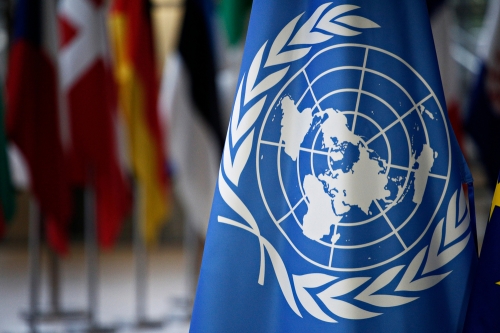
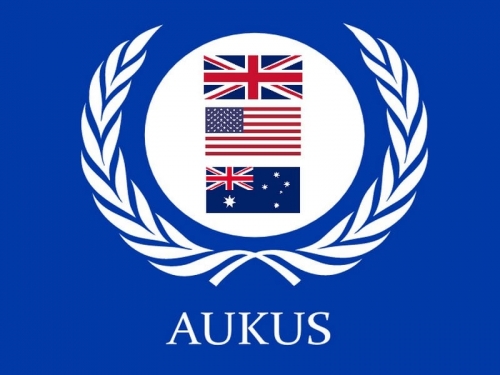
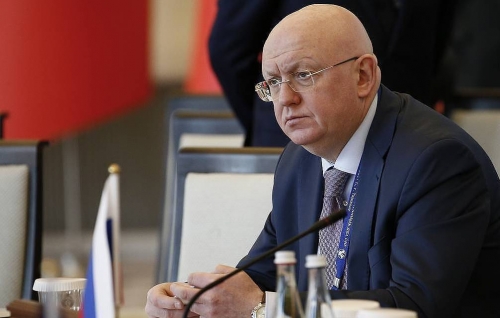
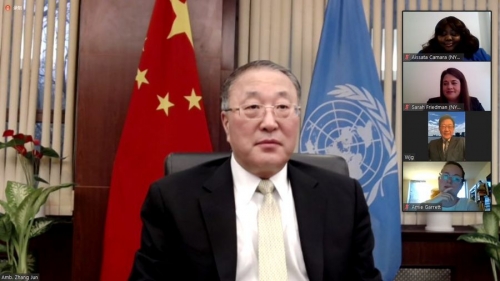

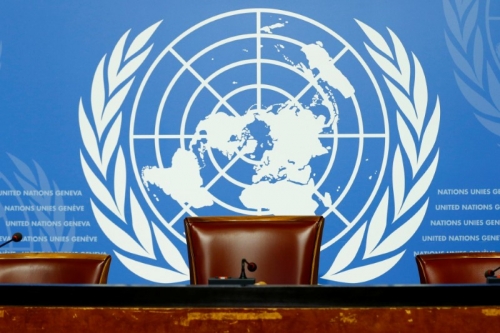

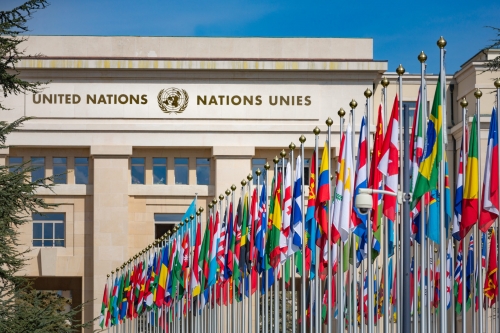
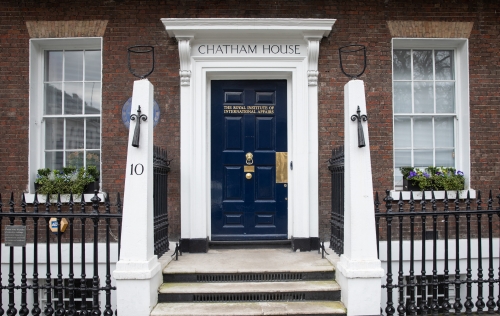

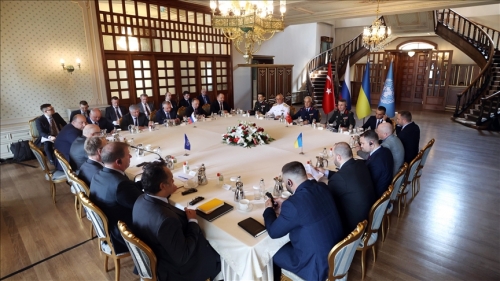




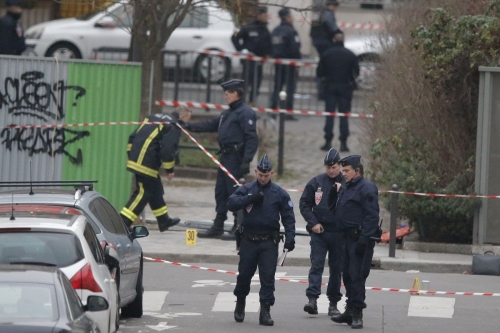
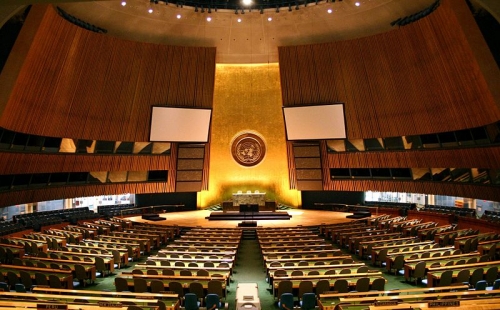
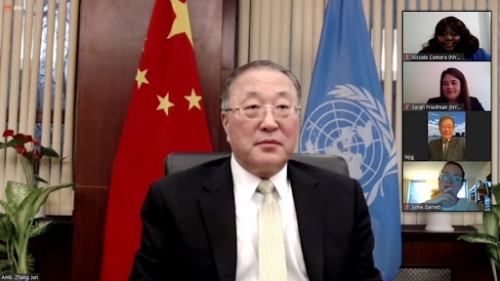
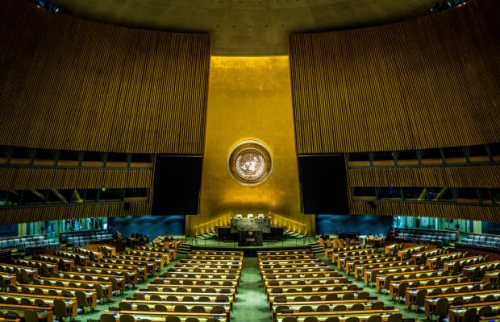
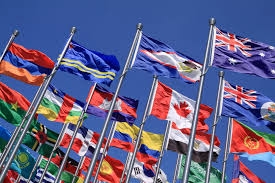
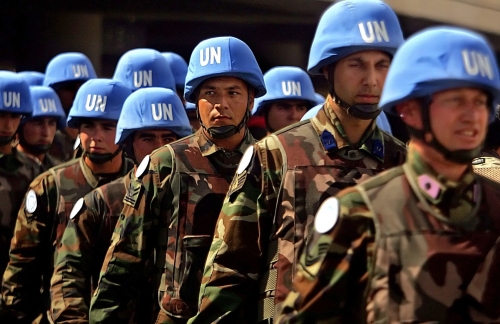
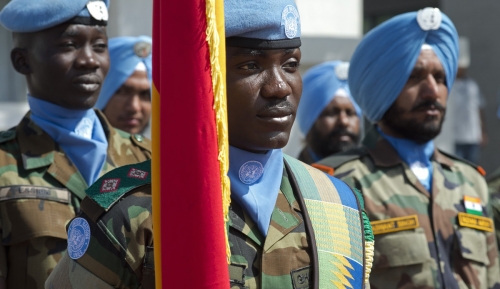
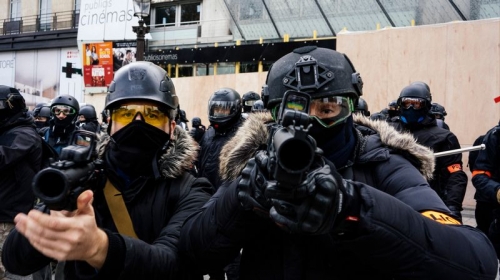


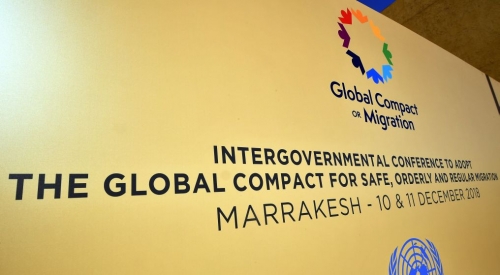
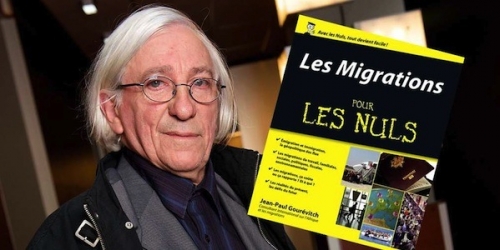

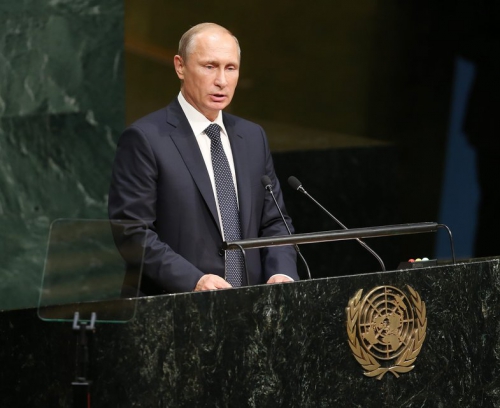

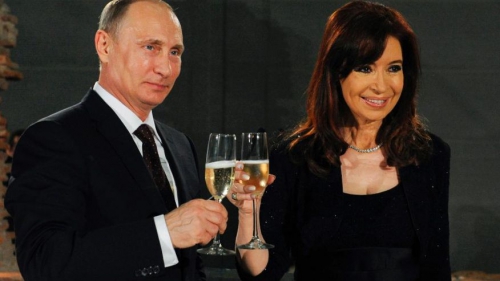


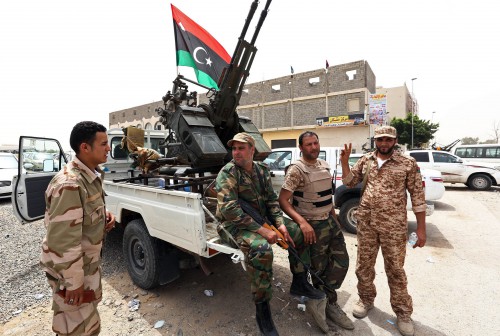
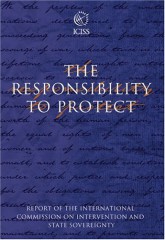 La « responsabilité de protéger » est une fausse doctrine conçue pour miner les fondements mêmes du droit international. C’est le droit réécrit en faveur des puissants. « Les structures et les lois qui fondent l’application de la R2P exemptent bel et bien les Grandes Puissances – défenseurs du droit international – du respect des lois et des règles mêmes qu’elles imposent aux autres pays.»
La « responsabilité de protéger » est une fausse doctrine conçue pour miner les fondements mêmes du droit international. C’est le droit réécrit en faveur des puissants. « Les structures et les lois qui fondent l’application de la R2P exemptent bel et bien les Grandes Puissances – défenseurs du droit international – du respect des lois et des règles mêmes qu’elles imposent aux autres pays.»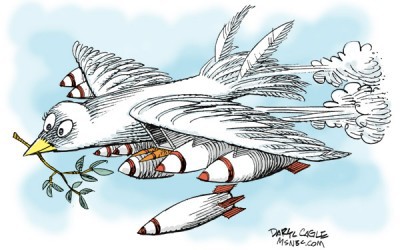 Lorsque la Coalition Internationale pour la Responsabilité de Protéger, sponsorisée par le Canada, se pencha sur la guerre d’Irak, ses auteurs conclurent que les exactions commises en Irak par Saddam Hussein en 2003, n’étaient pas d’une ampleur suffisante pour justifier une invasion. Mais la coalition ne souleva jamais la question de savoir si les populations irakiennes n’auraient pas de facto besoin d’être protégées contre les forces d’occupation qui massacraient la population. Ils campaient simplement sur l’idée que les Grandes Puissances, qui imposent le respect du droit international, même lorsque leurs guerres d’agression violent ouvertement la Charte des Nations Unies et font des centaines de milliers de morts, restent au-dessus des lois et ne peuvent faire l’objet d’une R2P.
Lorsque la Coalition Internationale pour la Responsabilité de Protéger, sponsorisée par le Canada, se pencha sur la guerre d’Irak, ses auteurs conclurent que les exactions commises en Irak par Saddam Hussein en 2003, n’étaient pas d’une ampleur suffisante pour justifier une invasion. Mais la coalition ne souleva jamais la question de savoir si les populations irakiennes n’auraient pas de facto besoin d’être protégées contre les forces d’occupation qui massacraient la population. Ils campaient simplement sur l’idée que les Grandes Puissances, qui imposent le respect du droit international, même lorsque leurs guerres d’agression violent ouvertement la Charte des Nations Unies et font des centaines de milliers de morts, restent au-dessus des lois et ne peuvent faire l’objet d’une R2P.